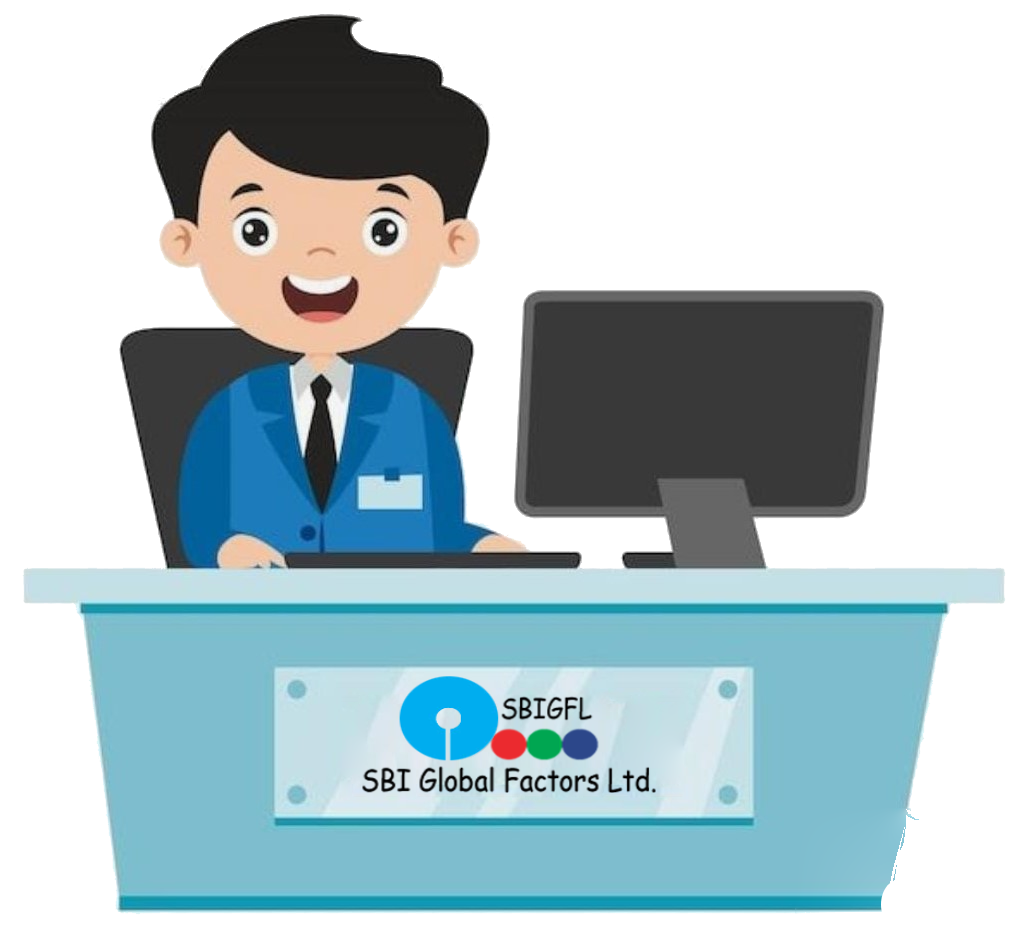Factoring is a financial transaction where a business sells its accounts receivable (invoices) to a third party (factor) at a discount .
A business sells its invoices to a factoring company, receiving immediate cash. The factoring company then collects payment directly from the business's customers.
Immediate cash flow, reduced administrative burden, improved liquidity, and access to working capital are some benefits of factoring.
Any business that invoices customers for goods or services can benefit from factoring, including MSMEs and companies experiencing rapid growth.
Recourse factoring is a type of factoring where the business remains liable if the customer fails to pay the invoice.
Non-recourse factoring is a type of factoring where the factoring company assumes the credit risk if the customer fails to pay the invoice.
Factoring fees typically varies depending on factors such as the industry, creditworthiness of customers, and volume of invoices.
Typically, businesses need to provide invoices, customer information, articles of incorporation, and financial statements to start factoring.
Approval for factoring can often be granted within a few business days, depending on the completeness of the application and documentation provided .
Factoring is based more on the creditworthiness of your customers rather than your own credit, so businesses with less-than-perfect credit can still qualify.
No, factoring is not a loan. It's the sale of an asset (invoices) at a discount.
Factoring provides immediate cash based on invoices, while bank loans require collateral and may take longer to approve.
Factoring can be done on a recurring basis as frequently as you generate invoices.
Yes, factoring provides immediate cash for invoices, helping businesses manage cash flow fluctuations.
Depending on the type of factoring (recourse or non-recourse), you may be responsible for repurchasing the invoice.
Yes,factoring can complement existing financing arrangements.
Factoring is commonly used by B2B businesses.
Yes, factoring provides immediate cash to fuel growth initiatives such as expanding operations, hiring more staff, or investing in equipment.
Contract terms vary, but many factoring agreements are flexible and don't require long-term commitments.
Yes, improved cash flow from factoring can help businesses negotiate better terms with suppliers.
Industries such as manufacturing, transportation, services, staffing, healthcare, and construction commonly use factoring.
Yes, factoring can provide consistent cash flow throughout the year, helping businesses manage seasonal peaks and valleys.
The factoring company and the business work together to resolve any invoice disputes with customers.
Yes, factoring provides cash without adding debt to your balance sheet.
Advance rates typically range from 80-90% of the invoice amount.
Factoring companies work with businesses of all sizes, from MSMEs to large corporations.
Factoring typically has minimal impact on customers, as they continue to interact with your business as usual.
Yes, factoring provides immediate cash, allowing businesses to take advantage of early payment discounts from suppliers.
Depending on the agreement, you may be able to stop factoring at any time without penalties.
Yes, factoring can provide immediate cash to cover payroll expenses.
Factoring can improve liquidity and working capital, which may positively impact financial ratios.
Yes, factoring companies typically handle collections on factored invoices, freeing up your time to focus on your business.
Factoring companies typically require basic information about your customers, such as contact details and payment history.
Yes, most factoring companies offer international trade finance services to facilitate cross-border transactions.
Yes, factoring can provide immediate cash for invoices related to government contracts.
Factoring does not impact your credit score since it's not a loan.
Yes, non-recourse factoring provides protection against non-payment by customers.
Yes, export factoring can provide the necessary cash flow to support international expansion initiatives.
Yes, factoring improves working capital by converting accounts receivable into immediate cash.
Yes, factoring can provide cash to pay suppliers promptly, strengthening supplier relationships and potentially negotiating better terms.
Domestic Factoring is a process of factoring of accounts receivables generated out of sales within India. The Seller assigns to the Factor the accounts receivables arising out of sales to buyers within the country on open account terms and receives payment thereagainst to the extent of 80-90% from the Factor, depending upon the credit terms.Click here to know more..
Need for Export Factoring :
International Business poses various risks and challenges, like:
- Risks arising out of non-payment, political risk, commercial risk, exchange control risks etc.
- Difficulty to discover or understand the buyer's financial situation.
- Difficulty to understand the sovereign risks.
- Lower realization in respect of sales against LCs inasmuch as the buyer is likely to deduct the cost of establishing LCs.
- Difficulties due to uniqueness of each geography with respect to currency, banking system, local trade practices and legal system.
- Customer's preference to trade in local currencies.
- Resistance by most domestic banks to providing the necessary financing on export receivables, which arise out of trade on open account terms.
Dealership Factoring will be extended by SBIGFL to the dealers (buyers) of industry majors (Seller) within India.
Features of Dealership Factoring Facility :
- Dealership Factoring facility will be without recourse to the Seller. The facility will, however, become with recourse to the Seller, in case of any commercial or quality dispute between the Seller and the Buyer(Dealer ) or if the invoice is not accepted by the Buyer(Dealer).
- SBIGFL will consider sanction of Dealership Factoring facility to the dealers, based on strong recommendations of the Seller (Industry major) by way of a comfort letter , backed by tripartite agreement.
In today's scenario, many of the manufacturing companies outsource their component manufacturing /services with a view to maintain cost effectiveness, inventory management, etc.
Vendor Factoring Facility introduced by SBIGFL helps Vendors from SME/MSME sector.
The facility will be extended for both domestic and export transactions under Letters of Credit opened by First Class banks. The disbursement under these LC backed facilities will always be done by SBIGFL after satisfying the genuineness of the LC and acceptance/ confirmation by the opening/ paying banks of documents being in order.




